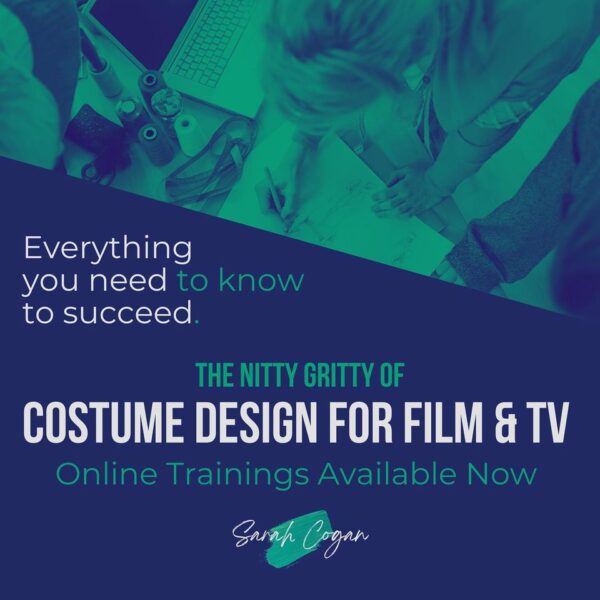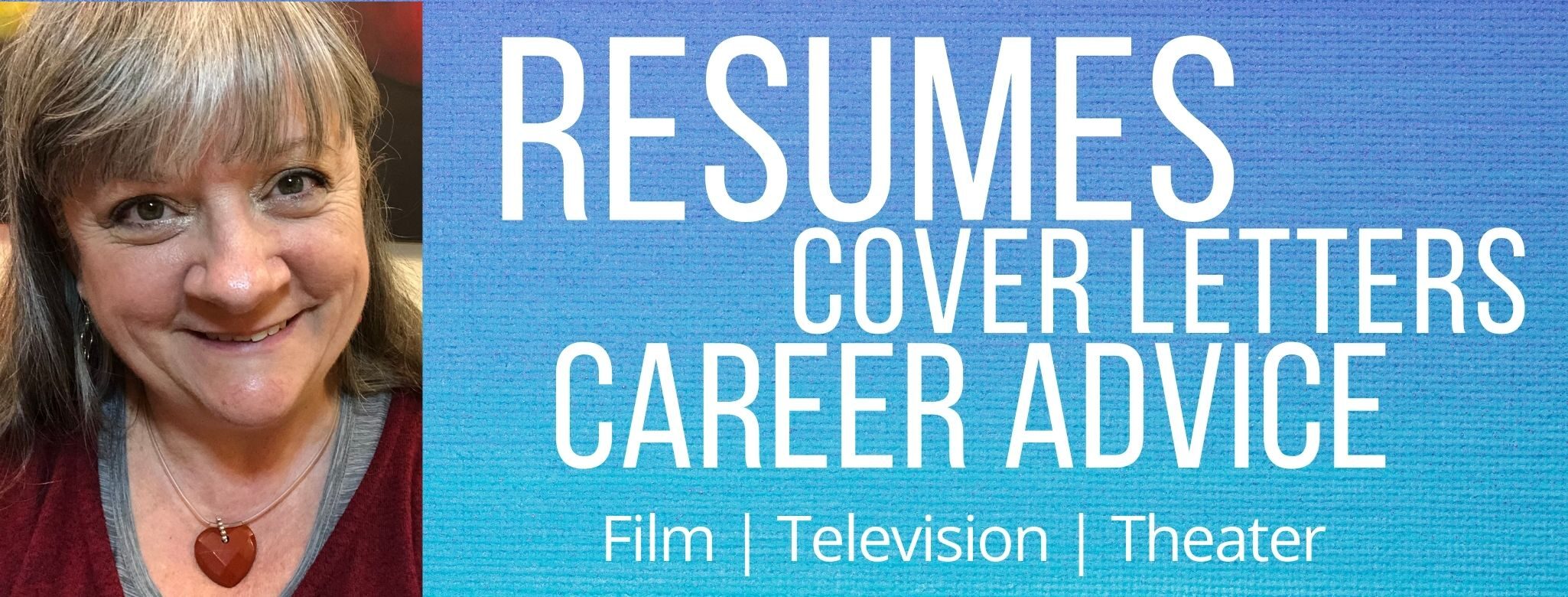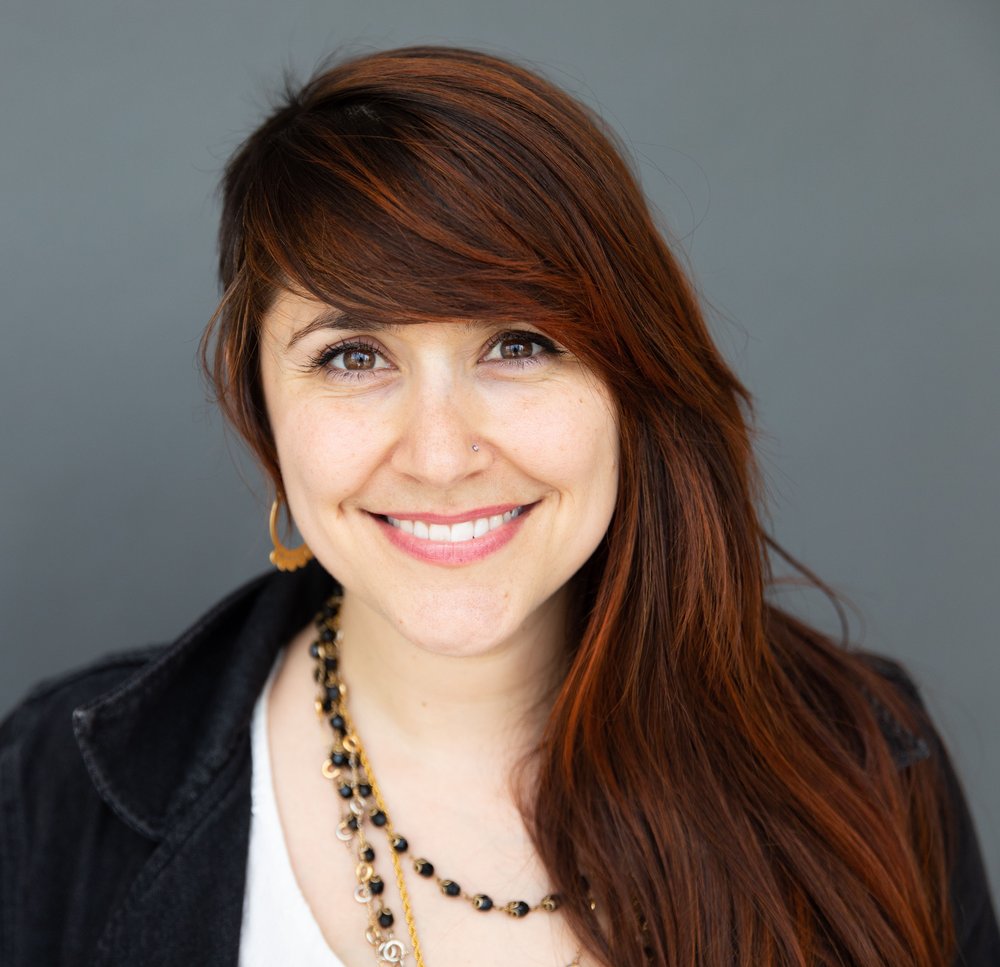I’m so happy to interview my recent colleague, Sarah Cogan. Sarah is a multi-hyphenate creative – Production Designer, Costume Designer, world building expert, and film industry educator who is currently presenting three excellent online courses for designers, producers and directors to help you on the path to successful filmmaking. Read to the end for an excellent discount code for you!
In between this she also runs a costume rental house in New York, hosts a podcast, and is the creator of Set Ready Go Ultimate Garment Bags, available exclusively through the Container Store. On top of that she has plenty of good advice on her social channels about finding work in film, especially as a costume designer.
Here’s the interview.
1/ What was your first job in entertainment, and how did you get it?
It’s funny. I’m not quite sure how to answer this. If it was my first ever job in the entertainment industry, then it’s one I got through my university at the time, UC Santa Barbara. The costume shop manager was designing a dance piece for the city dance company and needed me to dye things for her. It was a total case of who I knew, and that led to more opportunities.
2/ What about your second?
I’ve been pretty fortunate that I’ve just worked from one creative gig to the next, and since I would design everything from costumes to sets to lights, I was always working.
When I was starting out, I interviewed as the costume designer for a small web series. The company actually hired someone else, but they liked me and needed a production designer. I just said sure thing.
Two great things came from that: 1. the costume designer and I became friends and I ended up getting some really big breaks for my career through that relationship. 2. I got nominated for Best Design on the series, and met industry relationships that still propel me forward to this day. All because I said yes.
3/ What is the best piece of career advice you were given?
Your ego, or your pride, should never overpower your relationships with your collaborators or the story you are telling. Inevitably, the success of your work will depend on those relationships – meaning: we are here as filmmakers and narrative designers to serve something bigger than ourselves. When we lose sight of the community that we are bringing this story to life for and what the story itself actually needs, we lose the very reason we wanted to do this in the first place – to touch lives. If we, as individuals, are at the center of our storytelling because we “like” it, the story is hurt.
Oooh, also, come at every project with a beginner’s mind. Follow your curiosity, not your passion.
Passion comes and goes. Curiosity will keep you going long after the passion wanes. Here’s the best part about curiosity: sometimes you find something new that you wouldn’t have discovered if you just went to your old tricks or resources. Save those for the times when you really cannot discover and have to choose and move. If you’ve got time, explore.
4/ What is the worst?
The worst advice I’ve ever gotten was: “you should take everything that comes your way. You don’t know when the next job will come.” Or, “If you don’t take this job, you might never work again, so just say yes.”
Saying yes can be the best thing, as I mentioned before. But, saying yes out of scarcity and lack will leave you resentful, burnt out, and feeling taken advantage of.
You are both worth and more than allowed to say no to projects, especially if they don’t align with your values. And, values can be what is expected of you when the labor and wages to support are missing. Every hour you work, you deserve to be paid.
Also, protect your physical health; no one else will. So, don’t move heavy things alone because you don’t have a set of hands to help. This might mean: no we aren’t getting a different couch for the space or have a ton of options on set because it’s just me to load things in and out.
5/ What advice would you give to someone starting out who wanted to do the kind of work you do?
I’m not a financial advisor, so take this with a grain of salt. Do not put any charges for a show on your personal credit card. Here’s why: When you charge $5,000 or $10,000 on your credit card for a show, if you don’t $0 out by the statement date, you will be charged interest on the entire amount you spent, even if you ending balance is only $50. So, that means, you’ll get hit with an interest fee on every purchase you made for the show. It’s like a private loan to a company with no terms or conditions and you get left holding the bank fees.
If you are going to work a ton of 1099 jobs, then file for a business listing and get business bank accounts and cards. The interest rates are much less.
Get comfortable with talking money on jobs. It’s a bit awkward at first, I know. And, it’s literally going to be the thing that makes or breaks the longevity of your career and the quality of your life. Get comfortable with money now.
Keep learning. Read books, listen to podcasts.
Wow. Thanks for that truly practical and useful advice, Sarah. In my experience there are tax advantages to working 1099 and having a business too, but everyone should check with their own financial advisors.

Now, go check out Sarah’s courses:
Costume Design for Film & TV teaches aspiring costume designers everything they need to know to get hired and excel in the industry.
For filmmakers, Sarah is launching Art of the Lookbook: Make Lookbooks that Get You Funded which starts end of June.
Crafting Your Directorial Vision–Film Design & Worldbuilding for Directors and Filmmakers is currently evergreen online and always available.
Click here to Register and use the code WORKINPRODUCTION at check out to get 10% off
There is a good chance that as professional development courses, these may well be tax deductible. Disclosure: I’m an affiliate to this, but that won’t affect your costs. But the awesome discount will!

